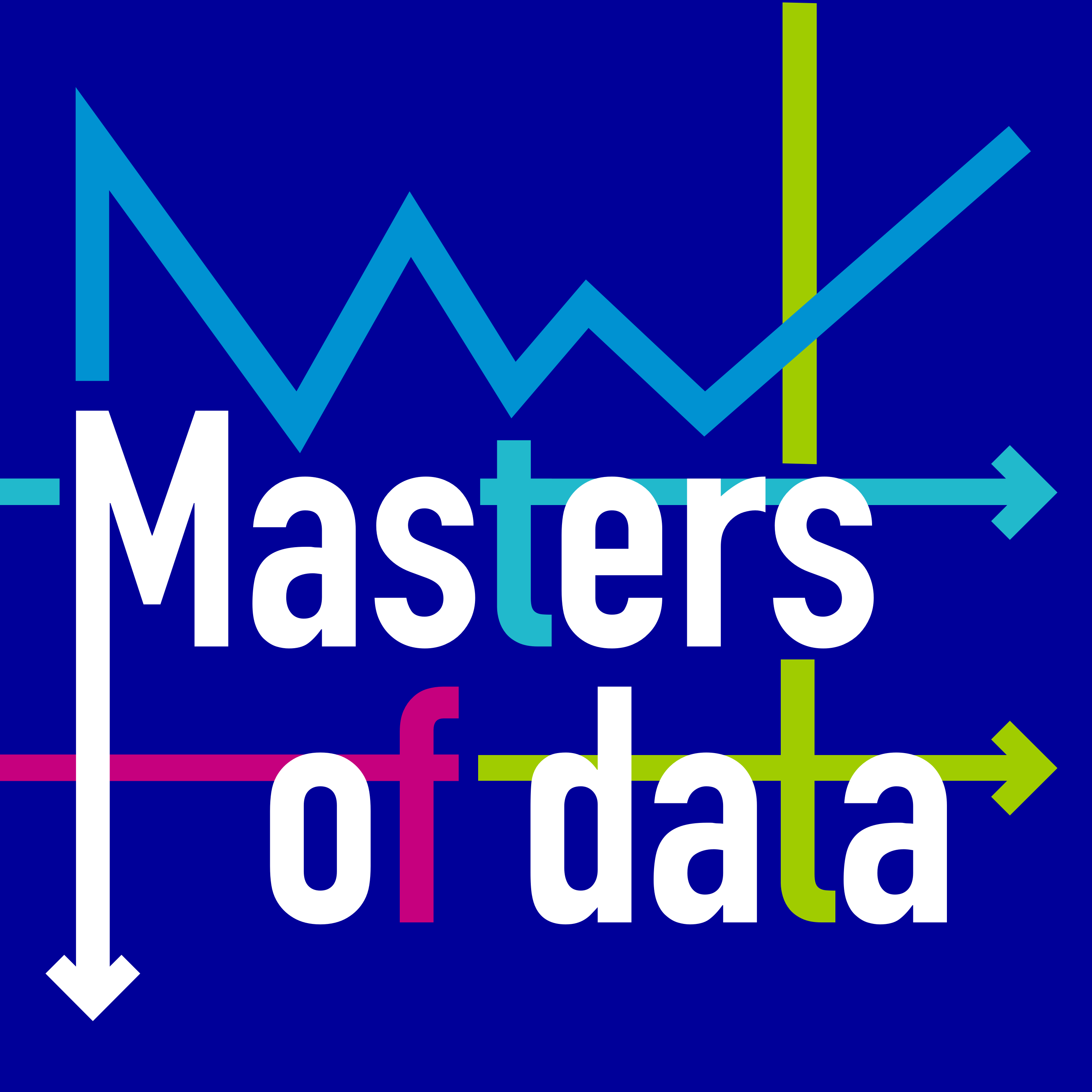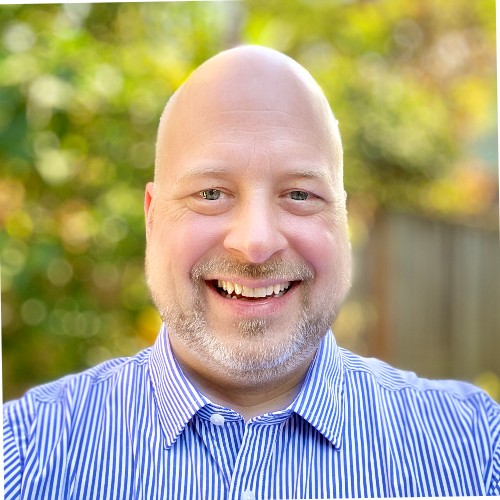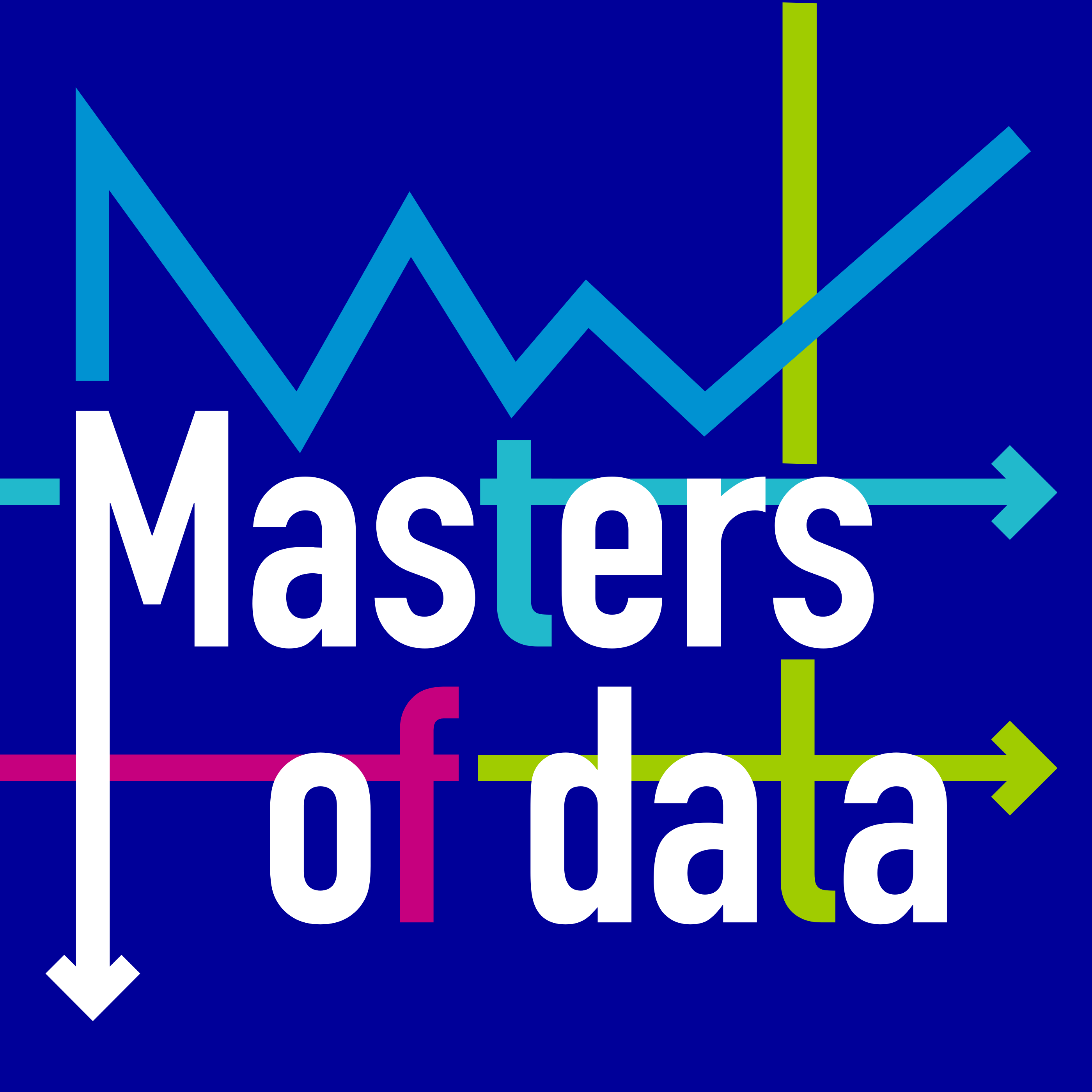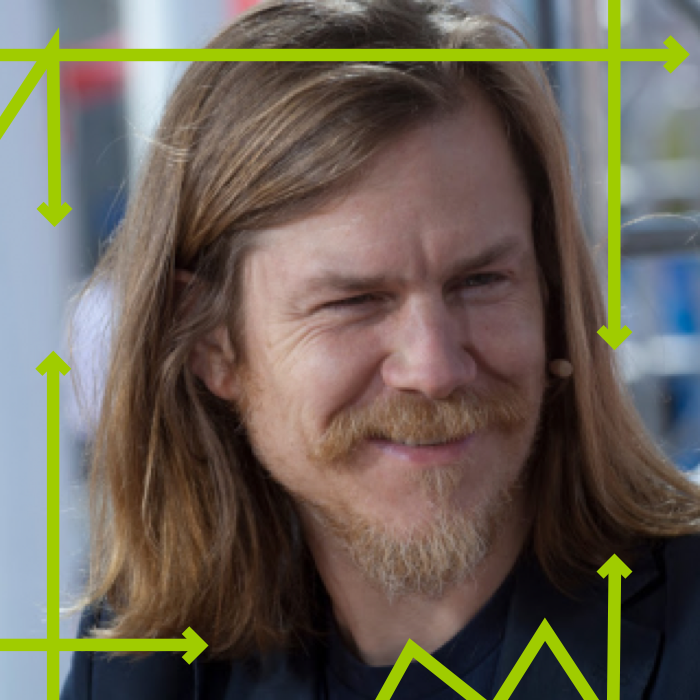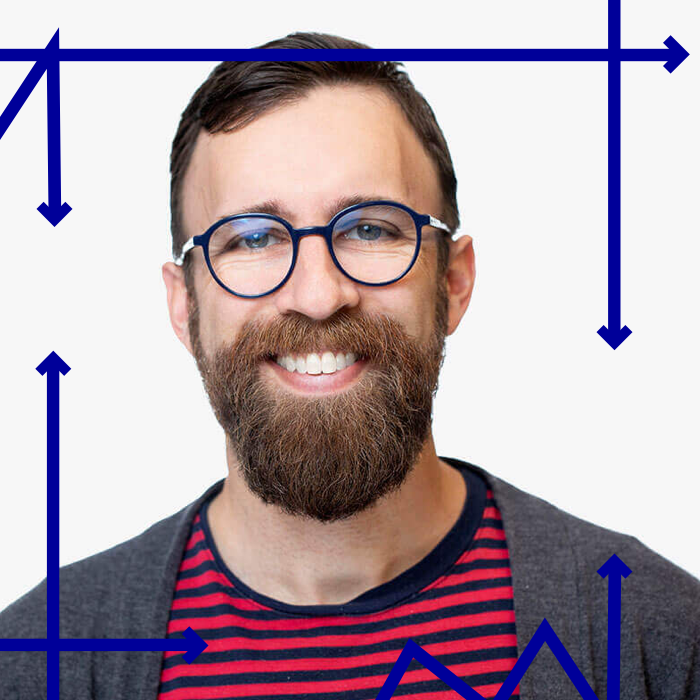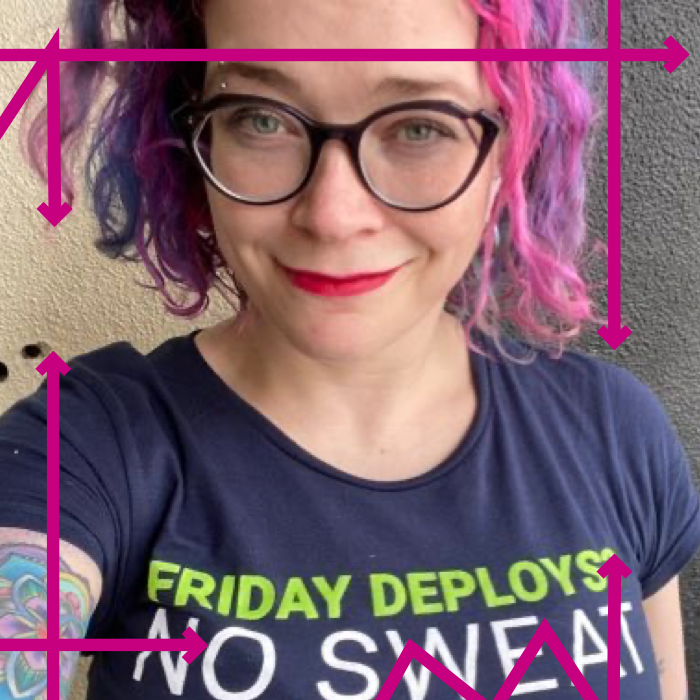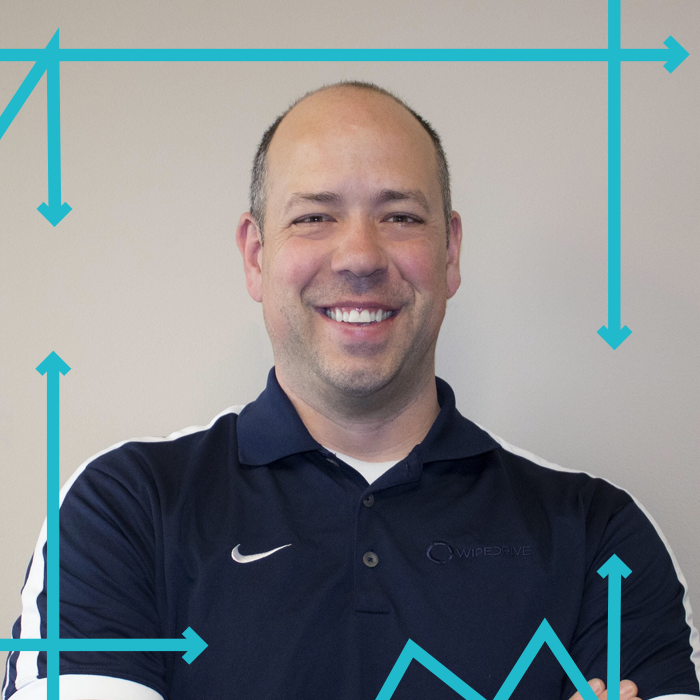Making Solar Investment Easy (Guest: Dave Riess)
- 0.5
- 1
- 1.25
- 1.5
- 1.75
- 2
Ben Newton: Welcome to the Masters Of Data podcast, the podcast that brings the human to data and I'm your host, Ben Newton. Green tech. Solar energy. What do you think when you hear these words? Probably putting it on your roof, right? Or maybe your local electricity provider. Wunder Capital is coming at it from a very different direction. They are filling the gap to help finance commercial solar, think community solar projects, solar panels on warehouses and a lot more. According to Dave Riess, co-founder and CEO at Wunder Capital, there's a lot of untapped potential. So without any further ado, let's dig in.
Ben Newton: Welcome everybody to a another episode of the Masters Of Data Podcast and I think you guys are going to really enjoy our guest today. It's in a field that we haven't covered as much in finance and in particularly a really interesting area around solar. So I'm pleased to have Dave Riess on here. He's the co-founder and CEO of Wunder Capital. Welcome man.
Dave Riess: Thanks for having me, Ben. It's good to be here.
Ben Newton: Absolutely. Yeah, I was telling you before, I keep looking at the name and I want to say Wunder Capital, but that's not how you pronounce it. So note to anyone else who was thinking that.
Dave Riess: Yeah, we were born and raised in Colorado, at least the company was, so.
Ben Newton: You're based in Denver?
Dave Riess: We're based in Boulder. Got a satellite office in Denver and then a couple people
sprinkled throughout the country.
Ben Newton: That's a great state to be based in. I think you guys got a really cool tech scene
going on there, so.
Dave Riess: Yeah, it's not bad. It's a pretty good quality of life. Good access to both coasts,
but more importantly, great access to the mountains.
Ben Newton: Yeah. Yeah, we started it off there in a similar logic. I think people really enjoy living out there. Well, we're really happy to have you on and I think I've had just a couple other people in here from the finance industry. I interviewed somebody just a couple months ago and you guys are heavy users of data in general. I think it's always really interesting to see how it weaves into what you guys are doing. But before we get started on that, like we do with everybody that comes on, I love to introduce the audience a little bit more to you and your background. So how did you end up at Wunder Capital? I mean, what's your background and led you to where you're at?
Dave Riess: Yeah, absolutely. So it's been a bit of a circuitous path. So coming out of undergraduate, my degree was in electrical engineering, so was a big geek coming out of school. Moved to New York City. Stumbled into the early stage technology company scene. Landed a job, my first job out of school, a company
1
that was building this platform for prototyping Linux devices. There's this embedded system that we were developing. This company called Bug Labs. If anybody remembers that from back in the day. It was pretty interesting product. Yeah, one thing led to another at Bug Labs and I moved from the hardware development side of the house to the software development side of the house. That is where I caught the bug and vis-a-vis software development and moved down that direction for most of the first part of my career. Wrote a lot of code in my early twenties, took a job as a product manager by my mid twenties, and ended up in this position where I was straddling the business side of several companies or the product side and also the engineering side as well.
Dave Riess: One thing led to another, I'll give you the abridged version here. One thing led to another and I found myself at an advertising technology company. We were basically helping big brands spend money more effectively on Facebook. That's when I realized I needed to reevaluate my selection criteria that I was using to sculpt my career. So I had a bit of a quarter life crisis, maybe a little bit of a late quarter life crisis, and realized that if I'm going to solve a really hard problem, if I'm going to work really hard trying to solve a really hard problem, I may as well be working on a problem that matters. So then that begs the question, well, what problems matter? What matters most? And took a little bit of time off to think about that and came up with this trifecta at the time, which I still think is a pretty good answer.
Dave Riess: I might adjust it slightly, but at the time it was energy, education, and healthcare. I decided that of those three energy was obviously the winner, because if you have a fantastic healthcare system and a fantastic education system, but you don't have a planet to live on, you're not doing too well. So I decided to reorient and go into energy as a place that I had spent a lot of time thinking about coming out of school. Actually as an undergrad, thought I was going to leave college and work for utility. I interviewed at a utility and saw that it was a pretty depressing cube farm. So I decided that wasn't the right thing for me to do. And anyway, so fast- forward to my late twenties. I was looking for a way into the energy space and I was specifically looking for a way to validate some of the hypotheses about the energy industry that I had developed as an outsider, specifically some hypotheses around why the space moves so slowly, why it seems so impervious to change?
Dave Riess: And I think there's a lot of group think about that and my views on the answer to that question and are a little bit contrarian. So, I wanted to go and talk to some of the people who are much closer to that problem than I was and validate or invalidate some of my hypotheses. And so I went to U Lawrence Berkeley National Lab and basically forced them to hire me as a researcher by offering to work for free.
Ben Newton: Really?
Dave Riess: Yeah, it was really cool experience. A really cool place. I mean, the National Lab is really a treasure. There's a lot of very, very intelligent people there working
2
very, very hard on some very niche problems. The reasons specifically that I went to the lab, Lawrence Berkeley, was because it's this melting pot of thought leadership within energy. So they deal with all of the California investor and utilities are the PG and E's, Southern California Edison, SDG & E. They're the most progressive, or some of the most progressive, utilities in the nation.
Dave Riess: They deal with the California regulators, who are pretty definitively the most progressive, or at least by some measures. DOE is Department of Energy as their primary financier. They deal with the other national labs in the network. They deal with some private labs that are in California. So it's really this nexus of thought leadership. And in my relatively short tenure at the lab, I got an opportunity to talk with a lot of people who I would have otherwise I think had trouble getting access to and actually got validation on some of the hypotheses that I had developed as an outsider. And it was at the lab that I found the opportunity, which is really what Wunder has been going after for the last six years. And that really was this recognition that in order to bend down our domestic carbon emissions curve, really the biggest lever that we have is the deployment of technology that we already have, specifically solar.
Dave Riess: If you look at the solar industry, you can break the solar industry into three segments. The residential segment, the commercial segment, and the utility scale segment. Residential would be systems on rooftops, generally about $10,000 to $20,000. The utility scale segment is gigantic, $50 million and up systems that are out in the desert. And then the commercial and industrial segment is really everything in between, pretty much. And if you look at growth amongst the segments, you see pretty solid, pretty robust growth within the utility scale segment. You see explosive growth within the residential segment. Within the commercial and industrial segment, it's crickets. There's very, very little growth in that segment. And if you ask industry insiders what's going on there, there are a number of factors. Really dominating that conversation are two factors. One is that transaction costs tend to be prohibitive in that space. And the other is that there is a dearth of financing. There's just not a lot of financing available for those types of systems. I can talk about a little bit why that is.
Ben Newton: And when you say transaction costs, what specifically does transaction costs
mean in that context?
Dave Riess: So that would be everything from permitting, to underwriting, to contracting. So underwriting, I'll back up here for audience. Underwriting is a fancy word that finance people use to describe risk evaluation. And so when you're doing, that's one of the things that really delineates these three segments. So I'll pick on that for a second. So in the residential segment you see a lot of access to capital, which is why there's a lot of growth within the residential segments and most of the capital that flows within the residential segment of solar flows on the basis of homeowner FICO. So homeowner credit worthiness.
Dave Riess: And I would say, I think many probably would agree with me, that homeowner credit worthiness is perhaps not a great proxy for solar investment risk, but it is
3
something that Wall Street understands and is very comfortable with. So no Wall Street investor has ever lost their job for investing on the basis of FICO. If you go to the other end of the continuum, you talk about the utility scale segment, you talk about a hundred million dollar investment, that falls into a category that the Wall Street world will refer to as project finance. And project finance is dominated by these really bespoke transactions. We got a lot of lawyers involved. You have a bunch of well-paid analysts who are evaluating various risks associated with the deal. You've got specialists who are looking at environmental impact and it's a really expensive transaction to do because you can afford it if you're deploying $100 million. You can afford a million or $2 million of these types of transaction costs.
Dave Riess: So if you start to scale that down and you want to look at the commercial segment, you don't have a turnkey risk evaluation methodology for a pizza shop, like FICO. There's no FICO for pizza shops. The example that I like to use is if I give you a hardware store in the middle of Kansas, I give you a hardware store in San Francisco and I give you a hardware store in upstate New York. I ask you to tell me which one is the healthiest hardware store. You can answer that question. But in order to do so you have to pour over the financials and you look at their transaction history. You have to look at the market and what the population growths. You're looking at a bunch of different things.
Dave Riess: It's fundamentally a very bespoke type. It's very custom type of risk evaluation. If you ask the same question across cohorts of humans, there's a lot more homogeneity across human beings than there are across hardware stores. And so you can look at FICO and while some people might have credit worthiness that is underrepresented by their FICO and some people might have credit worthiness that is overrepresented by their FICO, it's generally going to be pretty close. You have a law of large numbers at play.
Ben Newton: Oh, that's super interesting. So basically what you're saying is that you're seeing a large growth, but there's essentially a dip in this area that has a potential for growth. The credit worthiness of these businesses is really hard to evaluate because it's so special. Each business is a little different. Is that right?
Dave Riess: Yep, that's exactly right. So when we look at evaluating risk and conducting transactions more generally within the commercial space, the premise on which Wunder was founded was that we could deploy software and specifically deploy automation and decision support for the purposes of streamlining transactions within the commercial space. So when we saw that problem, that gap within the financing market, we immediately recognized that this is a place where we can deploy our competencies as essentially software developers to really move the needle from a transaction and cost reduction standpoint.
Ben Newton: That's super interesting because I guess you have the large numbers of, I don't know if you call it entities or whatever, that you might see and when you're talking about evaluating people so that you could start to see some patterns, but you don't necessarily have mechanisms in place already I guess. So there's an
4
opportunity for you guys to apply some tools that ... Because one of the things, right, is to really get those results out of AI, machine learning or whatever, you got to have a large quantity of data to really feed off of. So is that part of what made this attractive impossible is because the data is ... I mean well what data are we talking about when you talk about evaluating a business? What sources of data are you going after that you can really pull in?
Dave Riess: Yeah, absolutely. So, when we're evaluating these opportunities, so closing the loop on what Wunder does actually, is we specifically provide financing for commercial solar development. So the broad strokes of that are that you will have some type of a solar developer, there's a number of different archetypes of solar professional out there that is in the business of essentially assembling these types of deals. So, they might go to a warehouse and sell a system to that warehouse. There's a number of structures within which that sale is conducted, which we can get into that if you're interested. There's a little bit of nuance there, but really what we are financing is an investment vehicle that exists to basically build that system and then sell power from that system to some type of an underlying tenant. That's the most typical archetype. And so when we're evaluating these investments, we're evaluating really specifically that deal structure.
Dave Riess: And so we're looking at everything from the suitability of the roof to risks related to permitting. We're looking at off-taker credibility. So if we're selling the power to some specific, like a cold storage facility or a data center, we're looking at the credibility of that data center. We're evaluating the contracts that are used to stand up the transaction. We're looking at a lot of different aspects of the deal in order to put together a comprehensive picture of what the overall risk profile of a specific transaction looks like. And so it's not something where we are exclusively indexing on the bank-ability of the underlying commercial property or the commercial entity that occupies that property.
Dave Riess: And so there's a lot of different places that data comes from. In fact, data acquisition is one of our major challenges. Something that we're investing heavily in developing some infrastructure to attempt to streamline. Right now there are certain aspects of it that are highly automated and then there are certain aspects that are very manual and are relative cost centers for us. And once that disparate data gets ingested into our system, then we basically run it through this, and we can talk more about this, we run it through this pipeline that helps our risk evaluation team make sense of it and ultimately render a investment decision. A credit decision on whether or not this is the type of deal that is appropriate for us to deploy capital against.
Ben Newton: That makes a lot of sense. Because I think you and I were talking about this a little before we started recording, but you know there's ... A lot of times when people hear AI or machine learning and finance, particularly some of the things that have happened in the industry, it's a bad taste in people's mouths. Because there's a sense that these faceless algorithms just end up making decisions that no one can really understand. And I think it's interesting how you guys are, you're
5
doing here, because I think you see this in a lot of different industries, right? You can tell me if this analogy makes sense to you. But I mean sometimes I use it because I like comic book characters. It's the difference between having, Hal 9,000 and basically kicking the astronaut out the airlock. You have more of an Iron Man suit where it's basically augmenting the capabilities of a person. Right? So it sounds to me like you guys definitely have the Iron Man.
Dave Riess: Oh, man. I love that. Yeah. We are very, very, staunchly in the Iron Man camp. Yeah, that's a great analog. I'm definitely going to steal that. For us, ultimately, what we're doing is we're packaging up these loans that we're issuing against these solar assets and we need to sell them basically to a Wall Street investor. And so in the process of doing that, we need to be able to go all the way to the metal on the decision that was made. We need to be very, very explicit about why we would characterize this transaction as what we refer to internally as a conforming transaction. Something that conforms with our risk evaluation methodology. And so to your point around the extent to which we are using or able to use black box algorithms, I think there are places where that has room to play in the future. But at present we focus much more on decision support and specific places where we can basically extract human cycles from the transaction process.
Dave Riess: So that's oftentimes what I'll refer to as automation and less so on something that's trying to extract patterns from the underlying data. The other thing to recognize is that we deal with a lot of data, but I wouldn't characterize this as a big data company and I think this year we'll do something in the range of about probably a little bit shy of 300 deals. When we're working on these problems as an engineering team, as a product team, we're developing the infrastructure and the apparatus to enable us to ideally better than triple that next year to maybe something in the range of about a thousand transactions. Ultimately, we expect to be doing 10, 20, 30,000 transactions a year. Those are pretty big numbers, but that's not particularly big data. If you have three to 500 data points per transaction.
Dave Riess: It's not the type of thing where you obviously have a training data set that's of adequate size to train some super sophisticated neural net or what have you on the outcomes that you're trying to seek. There may be very well insight that you can glean from introspecting decisions that were made by the system or that were made by the humans within the system. But it's not a central tenant for how we're structured today. Really the way that we think about the world today is that our risk evaluation process is a composite of a bunch of decisions, of a bunch of atomic decisions, about specific aspects of a deal, adequacy of site control, credibility of off-taker and these things get pretty narrow. Years in business, things like specific financial metrics that we're looking at that we're pulling off of their financial statements.
Dave Riess: And when you start to look at those decisions, you can place them on a continuum and you can place them on a continuum where at one end you have super, super objective decisions. So that would be some of our economic
6
analysis that we do on the system. So our economic analysis that we do on the off-takers.
Ben Newton: What's an off-taker?
Dave Riess: I got to be careful with my verbiage here. The energy off-takers. The person
buying power. The company buying power from the system.
Ben Newton: Okay. Got it.
Dave Riess: So you have these objective evaluations, which are numbers in, numbers out. Those are pretty straightforward, pretty easy to streamline, are pretty easy to automate. And then you have super subjective decisions. I'll give you an example. At the other end of the continuum, which is evaluation of professionalism, which is something that we care about. We get signal from it. It's not something that we over index, but it is something that we look at. And what we find is that most of the decisions that we make exist somewhere in the middle where there are aspects of them that are quantitative and there are aspects of them that are subjective.
Dave Riess: And that's really why it is so abundantly clear to us that we need a hybrid system that can both streamline these objective decision making processes, but also tee up the information that a human needs in order to carry greater throughput through their semi or pseudo subjective decision making process.
Dave Riess: And so basically the way that we approach this as a practical matter is when we're looking at our financing process and we're trying to build an increased level of efficiency into that process, instead of saying to our product and engineering team, "Hey, let's take this thing that Emily is doing on our financing team and bring this into our software and take it off of her plate." Instead we're typically saying, "Okay, Emily can do five transactions a week, today. What tooling do we have to deliver to Emily in order for her to be able to do 50 transactions a week?" We're looking at trying to increase that throughput and trying to make sure that she's not doing anything that she doesn't absolutely need to do so that the way in which our humans are adding value to our underwriting process is really distilled down to the central aspects of what a human should be contributing to that process.
Ben Newton: That makes a lot of sense. Because you had mentioned before the previous interview I did with Brad Klingberg over at Stitch Fix. I think there's quite a bit of similarities over there because I think, yeah, there was a period of time in artificial intelligence and machine learning where it was, yeah, it was all about automating everything away. The machine is going to take it over. But I think what a lot of recently successful businesses have found that it's ... I really liked the way that you explained that. It's basically can I take these smart capable subject matter experts and make them more effective and help them increase their productivity by putting more at their fingertips. It's not about taking the decision off their plate,
7
but it's making them more effective day in and day out. I think that's a really compelling way to use technology. That's pretty cool.
Dave Riess: Absolutely. Yeah, it's been pretty transformative. We take that further. And one of the things that I think that it's an interesting contrast between the hybrid system that we have versus the hybrid system that, at least I understand from the podcast Stitch Fix has, is transparency. So this is another feature of our system that I think is pretty unique. From pretty early on we recognized, with the help of some of our advisors who'd been in and around building very similar systems prior or in other contexts, that it is incredibly important that our business team remain in lockstep with the way that our system operates. So what we want to avoid is a situation where we have some type of risk evaluation that is conducted in ... I don't know if you're a big Paul Graham fan, but I'm a big fan of Paul Graham's Do Unscalable Things. I'm pretty sure that's what the essay is called.
Dave Riess: Basically you do things the hard way first and then you basically understand your problem domain by virtue of doing the hard things that are unscalable and then you know what's offered to build or at least you have a better idea coming out of that. So we do a lot of that. And so predicated on that philosophy, if we have our financing team doing some type of an evaluation, what we want to avoid is a road where we say, "Okay, cool. This evaluation with the financing team is pretty well baked. It's pretty good. It's pretty well understood. We don't see a lot of need for this to move dramatically. So why don't we have somebody from our financing team sit down with somebody from our engineering team and let's write this into software."
Dave Riess: To us that is an anti-pattern, because what happens on the other side of that is now you have this piece of software, which is opaque to your business team and your business team's ability to diagnose the way in which the thing paving is basically nil. If this thing is having an issue or we even want to propose an iteration to it, you require that somebody from the business team sit down with somebody from the engineering team to go through and make sure that this thing is behaving in a way that lines up with our desired outcome.
Dave Riess: So one of the things that we've done that's pretty unique is that our data pipeline is architected specifically to be front to back understandable by our business team. The vision that we've had for long time now is that in two years time we want an analyst on our financing team, somebody who has no engineering background to be able to get up at a whiteboard and draw the data pipeline front to back and be able to describe in detail every step of the data transforms, every step of that pipeline that will leads to the ultimate results in data that we ultimately render credit decisions against.
Dave Riess: And that level of first principles based understanding of how our data pipeline works is essential, because we believe that it is essential that our financing team not think about risk evaluation in abstract terms. They have to think about it in real terms. And so what we've done is we've actually leveraged Google sheets, of all things, extensively and by using a spreadsheet, all of the calculations that
8
are done within our data pipeline happen within a spreadsheet and our infrastructure basically picks up those spreadsheets and will essentially automatically execute them for the purposes of executing the data pipeline. In the event that we need to introduce incremental additional steps to our pipeline we spin up new sheets.
Dave Riess: It's a very low cost process and we're still in the early innings of rolling this out. We've been rolling it out probably over the last couple of quarters I'd say, but it's really, really exciting that the result that this has had. It's been exactly what we've wanted. For several years now we've been building up to a point where the infrastructure is able to support this sort of thing and it's really profound to see the way in which our finance team is able to maintain full ownership over the way in which risk evaluation happens within their problem domain.
Ben Newton: That's super interesting. It's funny, what I think in the back of my head, one of the most impressive things that you just said is that you convince finance people to use Google sheets. Excel on windows. So, props.
Dave Riess: We're a Mac shop and man, I have had some battles getting people to give up their PCs. And we hire people out of Wall Street. They're like, "You want me to use a what?" I've won. I persevered. So we actually, it's funny that you mention that, we were working on this one transaction had a really complicated Excel model that we had to run and it was actually crashing MacBook Pros, because I don't know the details on this, I didn't take the time to spelunk. But apparently the OS10 Excel is way less resource efficient than the Windows version. And so we happened to have one PC in the office, which was the PC that we use to run our VR. We have like a little VR setup for fun. So we fired up the VR that nobody had used in a couple of months and put Excel on it. I green lit our Capitol formations team to use that, use the gaming rig, for this Excel model for a few weeks.
Ben Newton: That's fantastic. It's really interesting to see how you guys are using the data and the new technology to augment the people. You've taken a little bit of a step out of that. So you've got the system up and running. You said you done this [inaudible 00:26:43] deals now, so you've got a few under your belt. Are you seeing any interesting patterns? When you and I first connected, I probably like most people I'm like, "Oh, you finance solar on top of people's houses." That's what people think. It's either that or solar panels out in the desert. Even now as you describe different size businesses, I mean, is there different businesses, types of businesses that you've found that are just more conducive to this? Remote data centers or warehouses. What are you guys learning about industry? Is there anything you could share?
Dave Riess: Yeah, I mean I think there are a number of really interesting trends happening in particular within the commercial solar market. So we're seeing some really exciting stuff. And in community solar we've done a lot of community solar deals. So community solar is, some people might know about this, but this is this regime where you'll build a relatively good size system. This is happening a lot in New York. There's a little bit of this, well, we're in a little bit. This is happening in
9
Massachusetts as well. There's a number of markets where this happens. Minnesota, interestingly, has a pretty strong community solar market and a very strong program. But in any event, you'll build a relatively decent size array and then be able to sell sort of pieces of that power that that array generates to consumers. So it's a pretty cool model. It's this hybrid where you have basically a consumer off-taker, somebody who's typically a home owner of some form, although it could be a renter as well, who is ultimately purchasing the power from an array that is more of like a commercial scale.
Dave Riess: Maybe an array that costs ... Going back to my lingo clarification, an array is what we call a solar array. So that would be an installation of panels out in a field somewhere. And so anyway, we've done a a pretty big volume of commercial solar transactions over the last year in particular. That's seen a big uptick for us. We see an interesting kind of cohort in highly energy intense warehouse style applications like cold storage. We've done fewer data centers then I would have expected. I think part of the challenge with data centers is that they need super robust backup power and solar is only producing during the day. So I think when they're investing in energy infrastructure, generally speaking, it's biased towards infrastructure that backs up the grid. But I do think that there is a significant opportunity there.
Dave Riess: The broad thing that we're really, really excited about within the solar industry is a model that works in a deeply scalable way. So we're looking for ways to crack into the very, very generic flat commercial roofs that you see. For example, outside of San Francisco or outside of Los Angeles or outside of the New York Metro area. There are really a lot of unaddressed commercial rooftops in those jurisdictions. And there are a couple of reasons why solar developers are not aggressively targeting those opportunities. One of which is that connecting those sales is not trivial. It's a pretty difficult sale to conduct. And so when we think about what Wunder is really at its core, we are a technology company that mobilizes software for the purposes of decision support and automation to reduce transaction costs associated with building these solar arrays.
Dave Riess: And so right now most of the ways in which those capabilities are deployed is against the financing side of that equation. Although we also do our own asset management. So we've done a lot to reduce the cost and automate the way in which we conduct asset management. We're increasingly interested in looking at deploying our capabilities downstream of the financing, perhaps closer to the customer. Basically we're looking for ways to deliver additional value to our solar partners by giving them access to economies of scale that they might not otherwise have the capabilities to access or have the scale to access.
Ben Newton: That is super cool. Yeah, I mean you answered what my next question is going to be is what you guys are looking at next. I guess is to find some of these unexploited opportunities like that. I mean that's super, super interesting. We've covered a lot of ground here. I think you guys are, I really like the way you started out with this is that you were looking to do something that made a difference going into energy sector. Most people when they hear that, they would
10
immediately think, oh, there's household energy or it's big solar rays at Facebook or something like that. I mean what you guys are doing I think is really interesting. Addressing the businesses that are all around us. We're surrounded by them and helping those businesses take advantage of the solar revolution. So I think that's super cool what you guys are doing and I'm really interested in following you and see where you go from here.
Dave Riess: Awesome. Thank you so much. Well, if other people are interested as well, we
are hiring. So check us out.
Ben Newton: Absolutely. Go check them out.
Dave Riess: If I can give my shameless plug.
Ben Newton: Oh, not shameless at all. Absolutely. I think there's a lot of other people that want to get a look at businesses that are really doing something to improve the world around them. So I think you guys take a look at these guys. Well thank you, Dave, for coming on and thanks a lot for spending time with us. And we're looking forward to see what you guys do in the next few years. It will be exciting.
Dave Riess: Excellent. Thanks for having me, Ben. It's been a pleasure.
Ben Newton: Yeah, thanks everybody for listening and as always, find us on iTunes and rate us so that more people can find us. You can look for the next podcast episode in your feed and thanks everybody for listening. Take care.
Speaker 3: Masters Of Data is brought to you by Sumo Logic. Sumo Logic is a cloud native machine data analytics platform, delivering real time continuous intelligence as a service to build, run and secure modern applications. Sumo Logic empowers the people who power modern business. For more information, go to SumoLogic.com. For more on Masters Of Data, go to MastersOfData.com and subscribe. And spread the word by rating us on iTunes or your favorite podcast app.
11
DESCRIPTION
Green tech. Solar Energy. What do you think when you here those words? Probably putting on your roof, right? Or maybe your local electricity provider. Wunder Capital is coming at it from a different direction. They are filling the gap to help finance commercial solar - think community solar project, solar panels on warehouses, and more. According to Dave Riess, Co-Founder & CEO at Wunder Capital, there is a lot of untapped potential.
